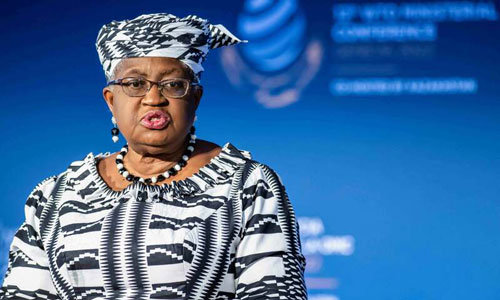The World Trade Organisation’s chief said on Tuesday she believes the world is heading towards a global recession due to multiple colliding crises, and called for radical policies to revive growth.
WTO Director-General Ngozi Okonjo-Iweala said Russia’s war in Ukraine, the climate crisis, food price and energy shocks plus the aftermath of the Covid-19 pandemic were creating the conditions for a world recession.
“Now we have to weather what looks like an oncoming recession,” she told the opening of the global trade body’s annual public forum in Geneva. “I think a global recession. That’s what I think we are edging into. But at the same time, we have to start thinking of the recovery. We have to restore growth.” She noted that the World Bank and the International Monetary Fund had both downgraded global growth forecasts, while indicators on trade numbers were “not looking too good”.
Okonjo-Iweala added: “We have security shocks, we have climate shocks, we have energy shocks, we have food price shocks, and all of this hitting coun-tries at the same time, so we cannot afford to do business as usual.” The former Nigerian finance and foreign minister said central banks were in a tight spot, with little choice over the course ahead.
“Central banks don’t really have too much of a choice but to tighten and increase interest rates — but the repercussions on emerging markets and de-veloping countries is quite severe, because they too are tightening an increase in interest rates,” she said.
“But what happens in the developed countries affects their debt burdens, affects what they have to pay to service debt, affects the flight of capital from their economies back into the developed countries.—AFP










